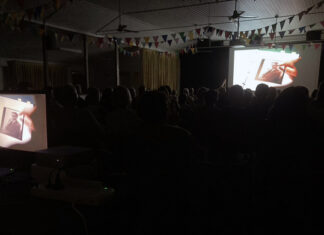 Almost 70 years ago, Steve Flood’s fingers were wrapped around a Lancaster’s controls as he flew over Berlin during Second World War bombing raids.
Almost 70 years ago, Steve Flood’s fingers were wrapped around a Lancaster’s controls as he flew over Berlin during Second World War bombing raids.
From the time he was 18-years-old, the Granite Belt man’s hands – like many who served in the Australian armed forces – shaped our nation’s identity.
Federal Member for Maranoa Bruce Scott met Mr Flood on Saturday night during an official farewell dinner to honour the veteran representatives participating in the Bomber Command Commemorative Mission to the United Kingdom.
“Mr Flood was discharged from the RAAF in 1945 and returned home to buy a small rural property on the Granite Belt to grow apples, stone fruit and vegetables,” Mr Scott said.
“It has taken decades, but now Mr Flood and others who served with Bomber Command will be appropriately honoured for their service and sacrifice,” he said.
“About 10,000 Australian airmen served with the Royal Air Force’s Bomber Command during World War II. Almost 3500 airmen were killed in action and some 650 died in training accidents in the United Kingdom – making the bombing campaign against Germany and Italy the most costly Australian combat action during the Second World War.”
Mr Scott said Mr Flood was named to travel to London for the official commemorative mission to be held today to recognise the service of Australians who served with Bomber Command during the Second World War.
Biography: Stephen (Steve) Gorge Flood, Stanthorpe
Steve Flood enlisted in the Royal Australian Air Force in October 1942 at 18 years old.
After training in Australia he was posted to the United Kingdom where he served as an air gunner with No 467 Squadron, RAAF, RAF Waddington in Lincolnshire.
Mr Flood recalls he never needed his electrically heated flying suit over Berlin as he was in a constant sweat the whole time.
However, the 88- year-old also said he remembers the laughter more than the terror.
The one word that springs to his mind when Mr Flood thinks about the men and women he served with is loyalty – loyalty to their jobs and to each other.
Mr Flood was discharged from the RAAF in 1945 and returned home to Queensland and farmed apples, stone fruit and vegetables.
He later worked as an export fruit inspector and then managed a Department of Primary Industries research station in the Granite Belt before retiring in 1987.
Mr Flood looks forward to the Bomber Command Memorial dedication as a fitting memorial to all the members of Bomber Command.
Honouring Steve Flood and Bomber Command
Digital Edition
Subscribe
Get an all ACCESS PASS to the News and your Digital Edition with an online subscription
19-02 Dalveen Film Society
More than a hundred years ago, the little hall at Dalveen played host to the just-invented movies– and thanks to the resilient little Dalveen...







